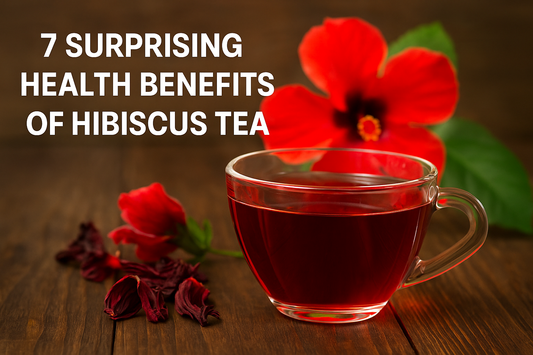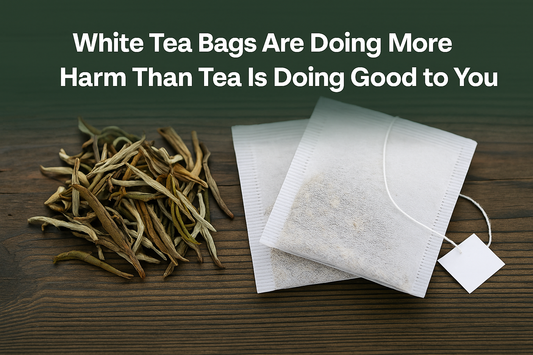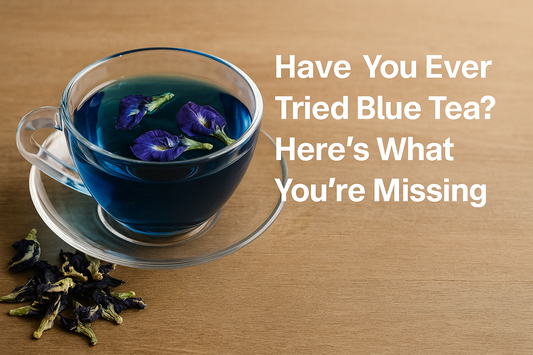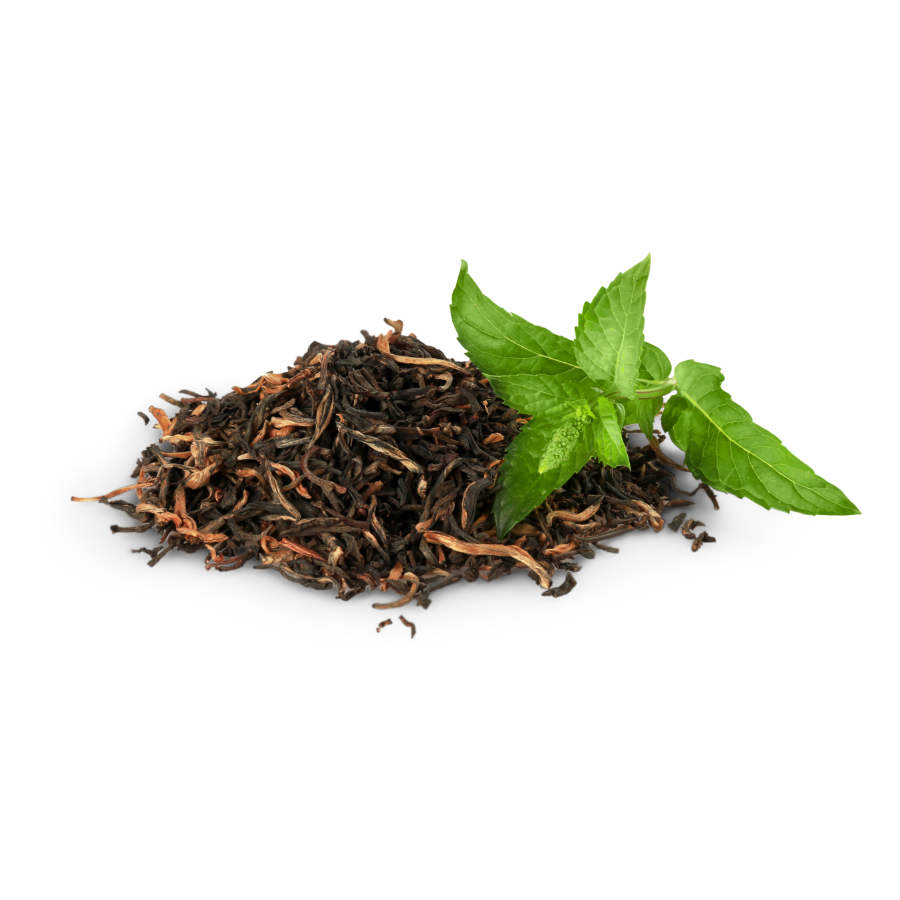How to Use Herbal Teas to Beat Monsoon Aches & Colds
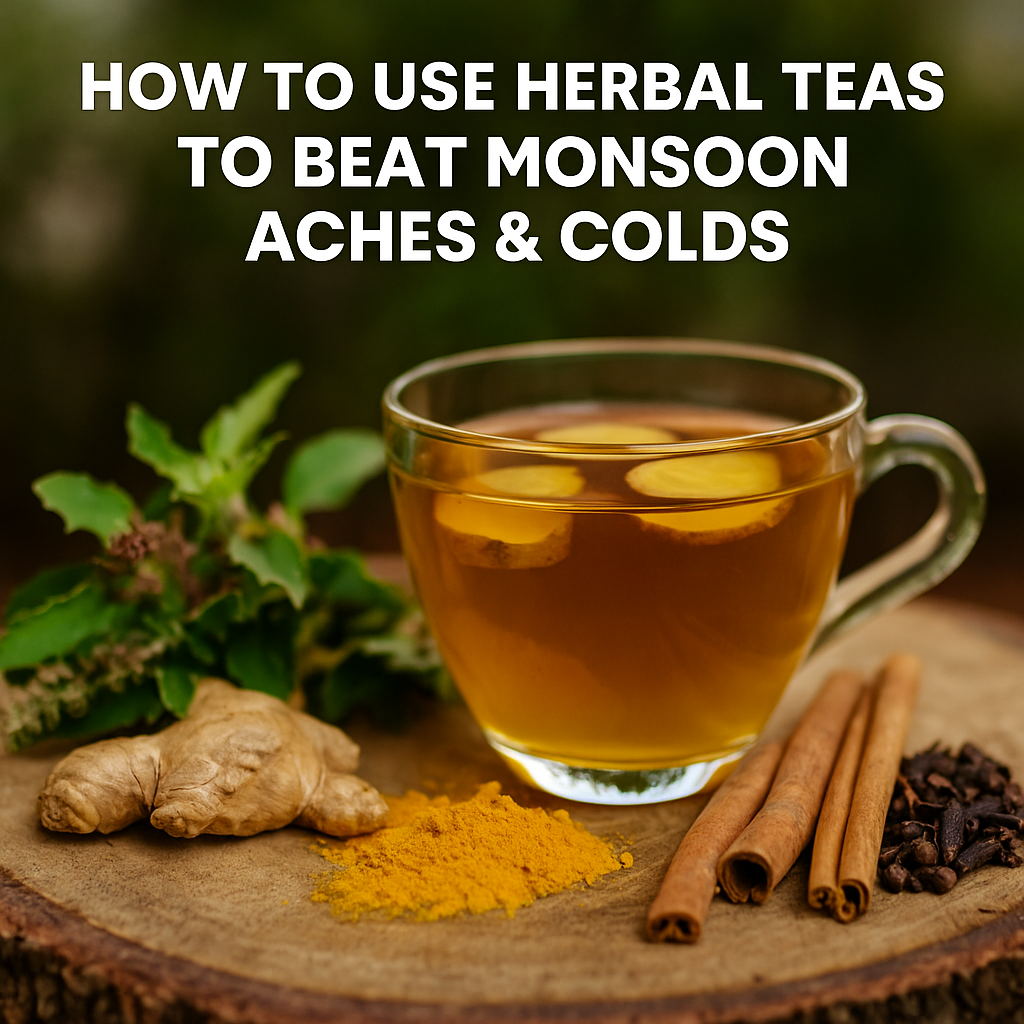
Introduction
The monsoon season brings with it a welcome break from the summer heat, but it also ushers in a wave of seasonal ailments – colds, coughs, body aches, and low energy. The sudden weather changes, excessive humidity, and lowered immunity make our bodies vulnerable to infections and discomfort. In such times, nature offers a gentle but powerful remedy: herbal teas.
Herbal teas have been used for centuries in traditional healing systems across the world. Rich in natural antioxidants, anti-inflammatory compounds, and warming properties, they serve as the perfect companion for the damp, chilly monsoon days. Whether it’s that sore throat after getting caught in the rain or the stubborn cold that won’t go away, a well-brewed cup of herbal tea can be your first line of defense — and comfort.
Common Monsoon Ailments & Why They Occur
During monsoon, our body’s natural defenses take a hit. The high moisture in the air fosters bacterial and viral growth, while temperature fluctuations confuse our internal regulation. Add to that frequent damp clothes, wet feet, and sudden exposure to cool winds, and you’ve got a perfect recipe for:
-
Respiratory issues: Like cold, cough, throat irritation, and congestion.
-
Body aches and fatigue: Due to lower sunlight exposure and increased inflammation.
-
Digestive problems: Monsoon slows digestion, making us feel bloated or uneasy.
The key to navigating this season is keeping the body warm, immunity strong, and digestion smooth — all areas where herbal teas shine.
The Best Herbal Teas for Monsoon Relief
Each herb brings its own unique properties to the cup. Here are some of the most effective herbal teas to soothe common monsoon-related issues:
-
Tulsi (Holy Basil) Tea: A powerhouse of immunity. Tulsi helps fight off viral infections, soothes the throat, and clears up mild congestion.
-
Ginger Tea: Ginger’s warming nature is ideal for body aches and sluggish digestion. Its anti-inflammatory and antiviral properties make it a must-have in the rainy season.
-
Turmeric Tea: Curcumin, the active compound in turmeric, is a natural anti-inflammatory and immunity booster. When paired with black pepper (for absorption), it’s great for fighting cold and fatigue.
-
Peppermint Tea: Excellent for clearing sinuses and easing headaches. Its menthol content acts as a natural decongestant.
-
Chamomile Tea: Helps you sleep better and reduces inflammation – especially helpful when the body is in healing mode.
-
Cinnamon Tea: Warming, mildly sweet, and great for digestion – cinnamon is also antimicrobial and helps prevent seasonal infections.
When & How to Brew for Maximum Effectiveness
The right tea at the right time can elevate its benefits. Here’s a simple guide:
-
Morning: Start your day with a Tulsi-Ginger tea to wake up your metabolism and clear your throat.
-
Post-meal: A Cinnamon or Peppermint tea helps in digestion and prevents bloating.
-
Evening: Opt for Chamomile or Turmeric tea to help your body relax and recover.
-
Before bed: Go for Chamomile again or a light ginger brew with honey for throat comfort and restful sleep.
✅ Brewing Tip: Always cover your cup while steeping to trap the medicinal oils. Use freshly boiled water and steep for 5–7 minutes depending on the herb.
-
DIY Herbal Tea Blends You Can Try at Home
You don’t need a fancy pantry to brew powerful monsoon teas. Here are a few simple combos using everyday kitchen ingredients:
-
Immunity Booster: Tulsi + Ginger + Black Pepper + Honey
→ Great first thing in the morning to fight infections. -
Cold & Congestion Reliever: Peppermint + Licorice + Fennel
→ Helps clear sinuses and soothes throat irritation. -
Anti-Aches Blend: Turmeric + Ginger + Clove
→ Ideal for body pain and inflammation. -
Sleep & Relax Tea: Chamomile + Lemongrass + Cinnamon
→ A calming brew for monsoon evenings.
✅ Tip: Use dried or fresh ingredients. Add lemon or honey as needed, but avoid milk with these infusions.
Precautions and Who Should Be Careful
While herbal teas are natural, they’re not always universally suitable. Here are a few things to watch out for:
-
Pregnant women should consult a doctor before taking strong herbs like licorice or turmeric.
-
People on blood thinners should avoid excess ginger or turmeric without medical advice.
-
Children below 5 should be given only very mild herbal infusions (like tulsi or fennel in light doses).
-
Always check for allergic reactions, especially with blended or store-bought herbal teas.
Remember: Moderation is key. One to three cups a day is usually more than enough for noticeable benefits.
Let Tea Be Thy Rainy Day Remedy
The monsoon doesn’t have to mean low energy, sniffles, or body aches. With the right herbal teas in your daily routine, you can support your immunity, soothe discomfort, and feel energized no matter the weather.
So go ahead — pick your herbs, boil that water, and sip your way through the season like a wellness warrior.

